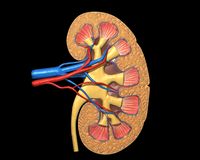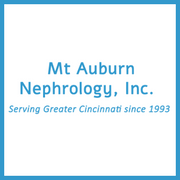
Kidneys play an integral role in our body, ensuring that waste is passed and that fluids within our system are balanced. One issue that frequently affects patients with chronic kidney disease is renal hypertension. If you’re going in for a kidney test at a nephrology clinic, here’s a basic rundown on what this condition is and how it can be treated moving forward.
Understanding Renal Hypertension
What Is It?
Renal hypertension, or renovascular hypertension, is the proper medical name for high blood pressure that is caused by kidney disease. This condition is a result of arteries that send blood through the kidney’s narrowing. As the arteries thin, the kidneys receive less blood flow. As a result, they react as though the body is dehydrated and release hormones that push your body to retain more water and sodium. This action, in turn, elevates blood pressure.
What Symptoms Should You Look For?
 Renal hypertension does not have any outward symptoms. Patients with chronic kidney disease can’t feel the arteries narrowing. When blood pressure is extremely high, you may experience headaches, nosebleeds, or pink-colored urine.
Renal hypertension does not have any outward symptoms. Patients with chronic kidney disease can’t feel the arteries narrowing. When blood pressure is extremely high, you may experience headaches, nosebleeds, or pink-colored urine.
Since renal hypertension has few symptoms until blood pressure is dangerously high, it’s important to schedule routine kidney tests with an experienced medical professional should you be at risk for the condition. The good news is, once diagnosed the issue can be treated through blood pressure medication, stenting, and angioplasty or surgery on the blood vessels.
Mt Auburn Nephrology is known throughout the greater Cincinnati, OH, area for providing unparalleled care to every patient. If you’re struggling with hypertension, kidney stones, or acute renal failure, call their office today at (513) 841-0222 to schedule an appointment at this top-notch nephrology clinic. To learn more about their services and what to expect from a kidney test, visit them online.
About the Business
Have a question? Ask the experts!
Send your question

